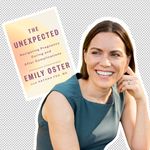
The economy must be a hungry god. Dan Patrick, the lieutenant governor of Texas, believes grandparents will sacrifice themselves for it. At the Federalist, a writer wondered if social distancing had gone a bit too far, had denied the god his rightful due. “It seems harsh to ask whether the nation might be better off letting a few hundred thousand people die,” he admitted. “Yet honestly facing reality is not callous, and refusing even to consider whether the present response constitutes an even greater evil than the one it intends to mitigate would be cowardly.” Rusty Reno, the editor of First Things, a conservative Christian journal, decried the “demonic side to the sentimentalism of saving lives at any cost.” Society requires triage, Reno suggested, not as a last resort, but as a preemptive measure. Some people are too expensive to save.
Within the conservative Establishment, the economy has other willing priests. Economist Stephen Moore recently told the Washington Post that public-health officials, while “vital,” had perhaps become too rigid. “You can’t have a policy that says we’re going to save every human life at any cost, no matter how many trillions of dollars you’re talking about,” he said. We’re “going to have to make some difficult tradeoffs,” Larry Kudlow, the director of President Trump’s National Economic Council, warned on Fox. Some even offered themselves up as tribute. Jesse Kelly, a professional Twitter user and occasional pundit, said he would “happily die” to save his beloved country from another Great Depression.
But no one is asking Jesse Kelly to die. They’re asking it of your grandparents, and of your neighbor with cancer; they ask it of me and of you, too, if your body is flawed or simply unlucky. The views expressed by Patrick and Reno and Moore, and by the Federalist’s various agitprop artists, are eugenics. They separate human life into categories. In one box, there are people worth saving. In the other, there are people we ought to let die. Believing this makes them eugenicists. What they contemplate is not quite mass murder, but a sort of planned, negligent homicide. Patrick doesn’t want to build gas chambers. He just wants to let nature take its course. The fit will survive the cull.
Conservatives are inordinately fond of calling people eugenicists. For years, they’ve applied the label to the pro-choice movement. The reasoning tends to gallop. Abortion is murder, ergo, parents who terminate a pregnancy because of fetal defects or disability participate in a eugenicist exercise. In this way, conservatives turn people with disabilities into useful props. The conservative can point at a child, turn on the tears, and scold you for wanting to murder him in the womb. It’s a cheap trick, notable mostly for shock value. I am not as sick as some, and not as handy an object lesson. Nevertheless, I have long understood that my value to the right ended when I left my mother’s body. For many conservatives, a fetus is the ultimate blank slate. Its value is determined by others; it cannot contradict them, or put forward its own ideas. It can’t ask to be treated a particular way or stray from God’s light. Best of all, it requires nothing from anyone but a womb. People, by contrast, are cumbersome. They make demands, have wills of their own. And alas for the priests of small government, people are expensive, especially if they need regular medical care.
What we see in the conservative movement is not tension. People like Reno or Patrick have no intellectual discrepancy to resolve; their anti-abortion instincts are not at war with their fiscal convictions. We see instead the truth revealed. These men don’t serve “the economy,” whatever that means. They serve power. Their economic arguments are smokescreens for something much uglier, which is apparent under even the most casual scrutiny.
A country’s economy and its people are inseparable. The United States can’t lose several million people in one go without feeling the loss. Even if one makes the amoral calculation that the elderly and sick are unproductive and therefore worthless to the economy, the novel coronavirus is not that selective. The elderly aren’t the only people with reason to fear the virus, and neither are people who were already sick. Over half of New York City’s hospitalized coronavirus patients are under 44 years old. Often the young dead lack any known preexisting conditions. If President Trump and Republican officials listen to Stephen Moore and not public-health experts, they could sacrifice their children and grandchildren alongside their own parents. It’s also not true that shutdowns must consign us to misery — the federal government could mitigate the economic losses of local shutdowns if it chose to.
But the arguments from the eugenicist right are useful to us anyway. The fact that they think the elderly and the sick are acceptable offerings is something we should remember long after the pandemic is over. They tell us their obsession with market forces was not about human flourishing, productivity, and abundance, but about something else. Supply-side economics gave them a way to intellectualize their own amorality. Markets care nothing for ethics. They aren’t governed by justice and they don’t feel mercy.
What today’s eugenicists are unwilling to admit is that there is one, less deadly way to rescue the economy from this pandemic. It’s redistribution, not just of resources but of power. The government will have to massively expand its tiny welfare state, and grant workers rights they do not currently have. It has the financial capacity to do so, but the project would force it to reconsider its priorities, which the conservative movement cannot tolerate. As they wring their hands on Fox, and repeat into the camera that the cure cannot be worse than the disease, they aren’t referring to shutdowns but to social welfare and to labor rights. They find a mass die-off of the sick and the elderly more palatable than basic social democracy.
We owe Donald Trump this much. He makes explicit some tendencies that the movement’s veneer once obscured. The rationalizations and pretexts are all so familiar. Conservatives don’t hate poor people; they just want to control government spending. They aren’t racist; they just think immigration threatens American jobs. They don’t value the fetus more than the person who carries it; they just believe life starts at conception. It was all a lie. The truth was always obvious to some of us, but now it ought to be visible to everyone else. Matters will become even clearer in weeks to come, as states contemplate the rationing of health-care resources. Alabama guidelines, originally written in 2009, suggest that conditions like “metastasized cancer, AIDS, ‘severe mental retardation,’ advanced dementia, and ‘severe burns’” may “disqualify” patients from being placed on a ventilator if hospitals are overwhelmed. The Third Reich fell decades ago, but the idea it was built upon did not die. Some life is still unworthy of life. For today’s eugenicists, the coronavirus isn’t a calamity. It’s the means to an end.
For many, the fight against abortion was not a fight against a culture of death; it was a crusade to keep women in their place. The fetus does matter more than the woman’s preferences or well-being because the fetus is going to be one of three things: a laborer, a fellow tyrant, or an incubator like its mother. Society thus reproduces itself from generation to generation, its hierarchy intact. And why not let the coronavirus cull the herd? The sick and the elderly are inefficient workers, which means they’re of limited use. The same values abandon incarcerated people and detained immigrants — along with the sick and elderly — to die. They aren’t productive. They might need things.






























